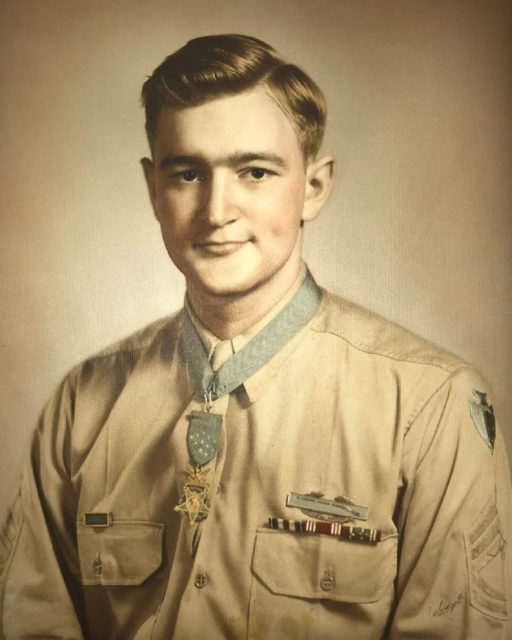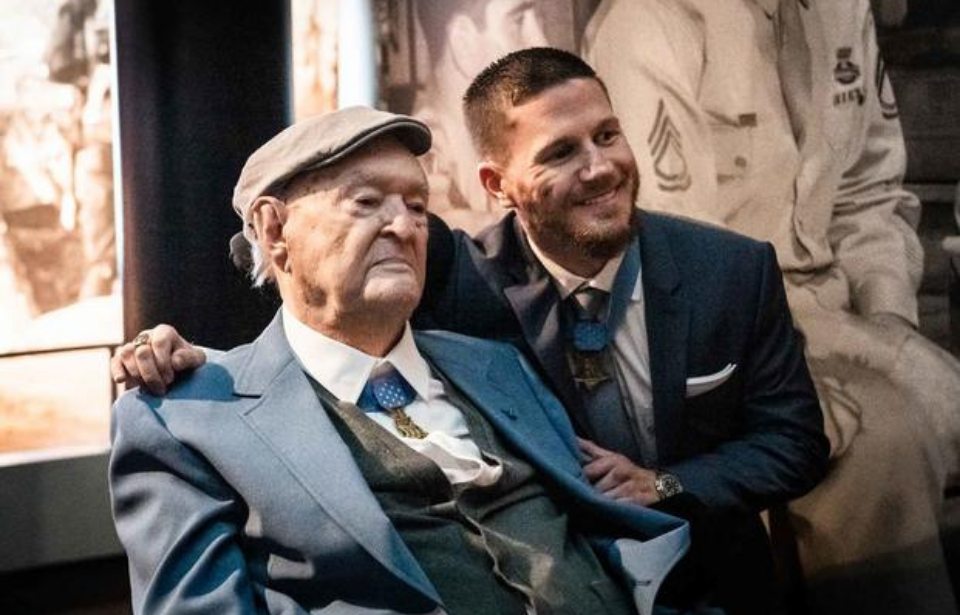The U.S. has lost its oldest Medal of Honor recipient. Charles Coolidge has passed away at the age of 99. He died April 6, 2021, at the Memorial Hospital in Chattanooga, Tennessee.
Out of 473 Medal of Honor recipients who received the award for actions during World War II, there is now only one still living, Marine Cpl. Hershel “Woody” Williams, who was presented his award for his actions at Iwo Jima.

Coolidge was born in Tennessee in 1921. He worked as a bookbinder at the business his father started, Chattanooga Printing & Engraving.
When the war started, Coolidge joined the Army. He trained in Georgia, Alabama, and North Carolina before deploying for the European front in the spring of 1943.
He was in the first American division to invade Europe in the war. He was part of the failed attempt to cross the Rapido River and fought in the Battle of Monte Cassino in 1944.
In May of 1944, he was part of the division that opened up Rome for the 5th Army to invade. He received the Silver Star for his actions in that battle.
Heroism in France
His division was then pulled from Italy and sent to Southern France where they advanced on the Siegfried Line — the German defensive line guarded by thousands of bunkers and pillboxes.
During a four-day battle near the French village of Belmont-sur-Buttant, he performed the actions that won him the Medal of Honor.
Coolidge was leading a section of heavy machine guns with support from a platoon from Company K. They were moving to cover the right flank in support of the 3rd Battalion.
In the woods, Coolidge and a sergeant were scouting positions when they stumbled on a large force of enemy infantry, possibly an entire company.
Coolidge tried to bluff in spite of the vast numbers in favor of the Germans. He called for them to surrender. They countered his offer by opening fire.
Since there was no officer present, Coolidge assumed command and led his troops to direct their fire at the enemy. Many of the soldiers in his group were experiencing enemy fire for the first time, but Coolidge moved up and down the line to offer encouragement, calm the men’s nerves, and direct their fire.
They managed to repel that first attack, but the German’s returned the next day. They continued wave after wave of attacks, but the Americans kept holding them at bay.
On the fourth day, the Germans attacked with support from two tanks. Coolidge calmly took a bazooka and moved to within 25 yards of the tanks. Unfortunately for Coolidge, the bazooka failed to fire.
So Coolidge rounded up all the hand grenades he could and crawled forward throwing one after another and inflicting heavy casualties on the Germans.
When it was clear that the Americans could not hold out against the superior numbers and firepower of the Germans, Coolidge called for an orderly withdrawal. Coolidge himself did not leave the position until he was certain all his men had withdrawn.
Later life and awards
When the war ended, Coolidge went home, married, and started a family. He worked for the Veterans Administration for a while after the war and then returned to his family’s business where he worked until he retired at the age of 95.
In addition to the Medal of Honor, Coolidge received the Bronze Star and the Silver Star. In 2006, France awarded him their Legion of Honor, their highest honor. The Charles H. Coolidge National Medal of Honor Heritage Center in Chattanooga was named after him. A highway and a park have also been named after him.
He was one of 12 Medal of Honor recipients to appear on the cover of the U.S. Postal Service’s Medal of Honor stamp sheet. In March 2021, he received the 2021 George Marshall Award by the State Funeral for World War II Veterans.
